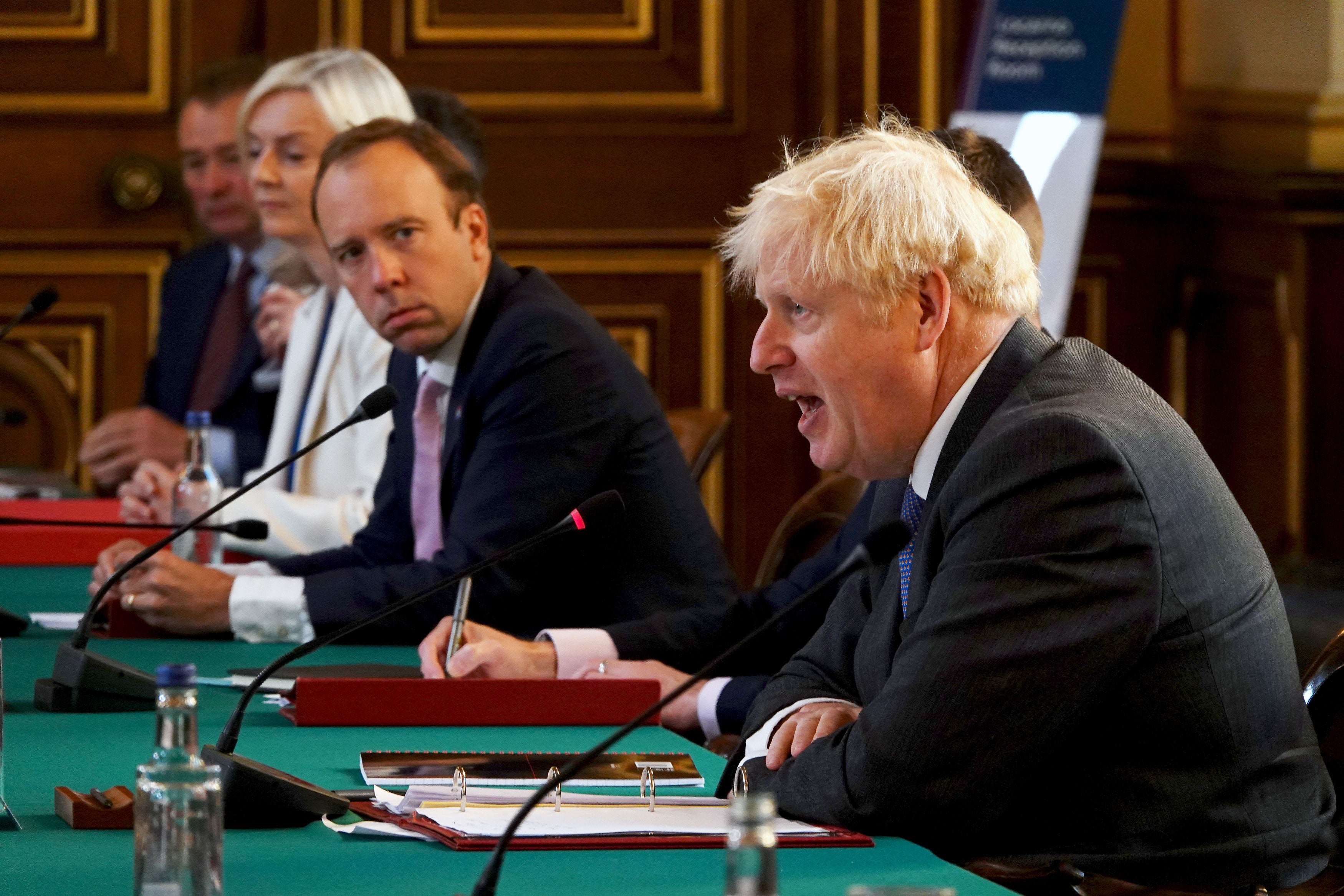Ministerial code ‘undermined’ by Boris Johnson needs urgent overhaul, think-tank warns
PM’s ‘dealings with ministers accused of misbehaviour show that he is willing to sacrifice those high standards in return for short-term political benefit’, paper says

Your support helps us to tell the story
From reproductive rights to climate change to Big Tech, The Independent is on the ground when the story is developing. Whether it's investigating the financials of Elon Musk's pro-Trump PAC or producing our latest documentary, 'The A Word', which shines a light on the American women fighting for reproductive rights, we know how important it is to parse out the facts from the messaging.
At such a critical moment in US history, we need reporters on the ground. Your donation allows us to keep sending journalists to speak to both sides of the story.
The Independent is trusted by Americans across the entire political spectrum. And unlike many other quality news outlets, we choose not to lock Americans out of our reporting and analysis with paywalls. We believe quality journalism should be available to everyone, paid for by those who can afford it.
Your support makes all the difference.Boris Johnson has been urged to urgently overhaul “fundamental flaws” to the ministerial code that has been “severely weakened” and undermined during his time at No 10, a new report claims.
Highlighting the explosive resignation of ex-health secretary Matt Hancock, the Institute for Government (IfG) said the episode once again made clear that “more than just piecemeal updates are needed”.
In a scathing paper, the authors also suggested Mr Johnson’s response to cabinet ministers “accused of misbehaviour show that he is willing to sacrifice” high standards in government, “in return for short-term political benefit”.
It claims the existing ministerial code contains “several fundamental flaws”, including the inability of the independent adviser to act without the prime minister’ permission and lack of clarity over how ministers should respond to lobbying – an issue highlighted by the Greensill scandal.
The IfG recommends putting the text as well as the existence and role of an independent adviser – a position currently held by Lord Christopher Geidt – into statute and making clear what particular sanctions apply to different breaches of the ministerial code.
And it also suggests strengthening the role of the adviser, updating the code to reflect concerns over social media, and requiring ministers to publicly abide by the code to “strengthen its importance”.
“Recent revelations about the lack of transparency in government, particularly around meetings with Greensill Capital, and the questions of accountability prompted by the Hancock affair make clear that more than just piecemeal updates are needed,” the organisation said.
“How and why Gina Coladangelo was first appointed as an adviser and then a non-executive director in the Department of Health and Social Care, the apparent conflicts of interest even before any romantic relationship started and wider reports of Hancock’s use of a personal email account are all controversies the ministerial code should have warded against.”
The report – Updating the Ministerial Code – which is published today, also cited the resignation of Sir Alex Allan, who quit as the prime minister’s independent adviser on ministerial interests after Mr Johnson rejected his assessment that Priti Patel had broken the code by bullying staff.
It added: “In both the version of the ministerial code Johnson issued on becoming prime minister, and in his more recent ‘declaration on government reform, he has claimed that he expects high standards in government.
“But he has not acted in a way that matches his rhetoric. His dealings with ministers accused of misbehaviour show that he is willing to sacrifice those high standards in return for short-term political benefit”.
“By calling on Conservative MPs to ‘former a square around the Pritster [Patel], and by saying he ‘considered the matter closed’ when the news of Hancock’s breach of Covid rules broke, Johnson has undermined the code.”
Referring to Mr Johnson’s commitment to publish a new code in “due course”, the authors said the prime minister “should now take the opportunity for a more fundamental refresh of the code”.
Tim Durrant, an associate director at the think-tank, said: “The prime minister claims to value high standards of behaviour in government, but under his watch the system upholding them has been severely weakened.
“His decision to publish a new version of the ministerial code is an opportunity to repair some of the damage”.
A Cabinet Office spokesperson said: "The Prime Minister, as ultimate arbiter of the Ministerial Code, expects his ministers to maintain the high standards of behaviour set out in the code.
"We note the Institute for Government’s report and are already considering the recommendations from the Committee on Standards in Public Life’s Standards Matter 2 Review, which is due in the autumn."
Join our commenting forum
Join thought-provoking conversations, follow other Independent readers and see their replies
Comments